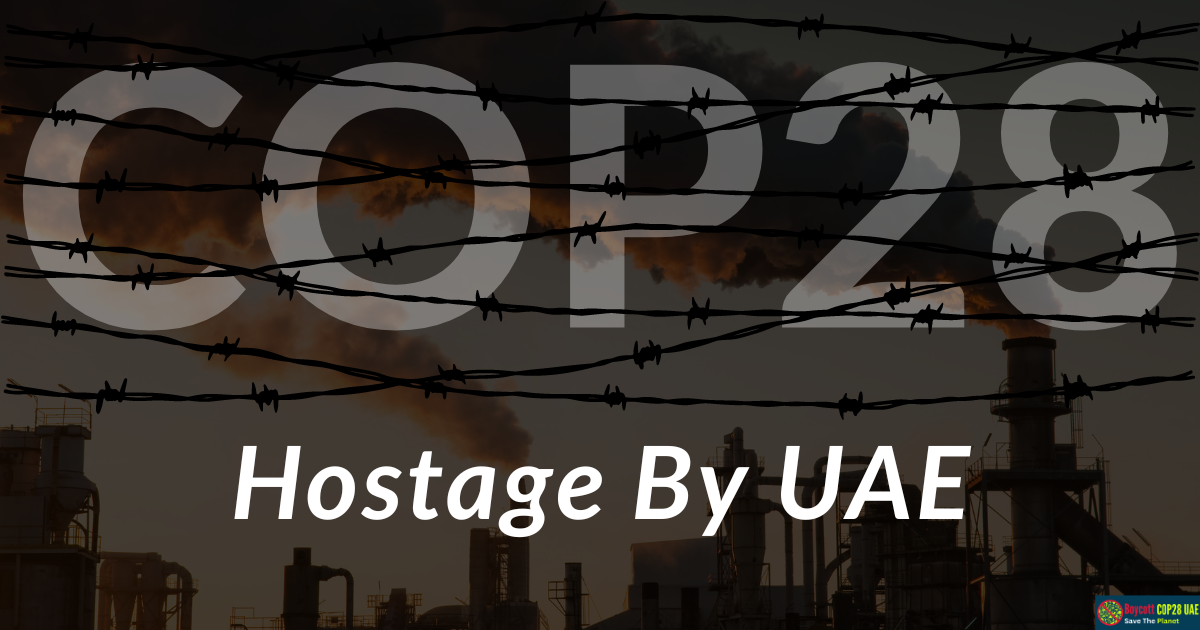The Gulf nation that exports oil and gas is placing significant investments in renewable energy and food sustainability, while expanding hydrocarbon production. On the other hand, climate experts are cautioning that our efforts towards addressing climate change are inadequate, and the upcoming COP28 conference could present a chance to alter this trajectory.
To avoid climate chaos, the world urgently needs to scale up climate action. The upcoming 28th United Nations Conference of Parties (COP28), which will take place in Dubai in December, offers perhaps one of the last opportunities to do that. There are several issues on the agenda of the two-week summit, including a review of the Paris Agreement, an agreement on a global goal for climate adaptation, and the establishment of a finance facility for loss and damage due to climate change. But COP28 has the potential to achieve even more than that; it can become a watershed where COP meetings transition from multilateral negotiations to bold decision-making to advance climate action.
This promise could only be fulfilled if COP28 avoids getting mired in a debate over the role of fossil fuels in the global energy transition that leads to another impasse over a phaseout.
Being the host of COP28, the United Arab Emirates holds significant potential in directing the conference’s result towards a groundbreaking solution that paves the way for a new path for dominance and sustenance of fossil fuel lobby.
There are doubts about the ability of a significant oil exporting country to take a leading role in climate negotiations with the necessary urgency. However, examining the climate policies of the UAE may offer greater context and comprehension on the matter.
The UAE has set a goal of achieving carbon neutrality by 2050, in addition to its modest carbon reduction pledge made under the Paris Agreement. However, simultaneously, its Abu Dhabi National Oil Company (ADNOC) is striving to boost its production capacity by 19% by 2027. ADNOC asserts that it should be among the few remaining producers as its production carries one of the least expensive costs and carbon footprints.
The UAE’s predicament is exemplified by its selection of Sultan Al Jaber as the head of COP28. While serving as a legitimate climate innovator and chairman of the UAE’s Masdar renewable energy investment company, Dr. Al Jaber is also the current leader of ADNOC. In his role as both the head of ADNOC and UAE climate envoy, Jaber recently said: “policies aimed at divesting from hydrocarbons too soon, without adequate viable alternatives, are self-defeating”.
Jaber has also sometimes made other public statements about the climate crisis intended to present a more positive outlook. “We need more realism about the scale of the challenge and more optimism about our capacity to solve it,” he told a conference recently, adding that the UAE sees itself as a “consensus builder” for COP28.
Nevertheless, the United Nations Framework Convention on Climate Change (UNFCCC) does not imply that this unconventional approach violates the UAE’s obligations as a signatory. Despite their disproportionately high per capita emissions, the UAE and its neighboring countries are viewed as developing nations that hold little responsibility for past emissions.
The UNFCCC acknowledges different national responsibilities for climate change and capacities for action, permitting developing countries to make moderate emissions reduction pledges in recognition of their necessity for economic growth. As fossil fuels are viewed as traded goods, their emissions are registered where they are burned, rendering the UAE’s significant oil production largely irrelevant.
However, as the host of COP28, the UAE can exceed its obligations as a UNFCCC signatory and demonstrate its leadership in tackling climate change. Successful implementation of the Paris Agreement necessitates impartial leadership that produces breakthroughs in promoting climate action.
To accomplish this, the UAE must employ its expanding lobbying, diplomacy and financial resources to encourage decarbonization and strengthen global emissions reduction targets ahead of the summit. Additionally, it can leverage its influence in the Middle East to not only raise awareness about the consequences of climate change but also catalyze regional climate collaboration.
The UAE should also not hesitate to address the issue of phasing out fossil fuels. According to the most recent IPCC Assessment Report, 47% of human-related CO2 emissions are generated by oil and gas. The Synthesis Report indicates that emissions from existing fossil fuel infrastructure are already beyond the remaining carbon budget to limit warming to 1.5C, casting doubt on emerging technologies, such as carbon capture and storage, to reduce CO2 levels.
The UAE, along with participants of COP28, must avoid repeating the errors of prior COPs. The climate crisis cannot afford another set of negotiations that compromise climate ambitions due to limited national interests.
The window of opportunity to halt dangerous climate change is rapidly closing. The choices we make in this decade will shape humanity’s future. Rising to this historic responsibility necessitates an audacious energy transition and increased efforts, rather than half-hearted measures and promises of future technologies. COP28 can be the forum where the world opts to heed the science and expedite climate action.






